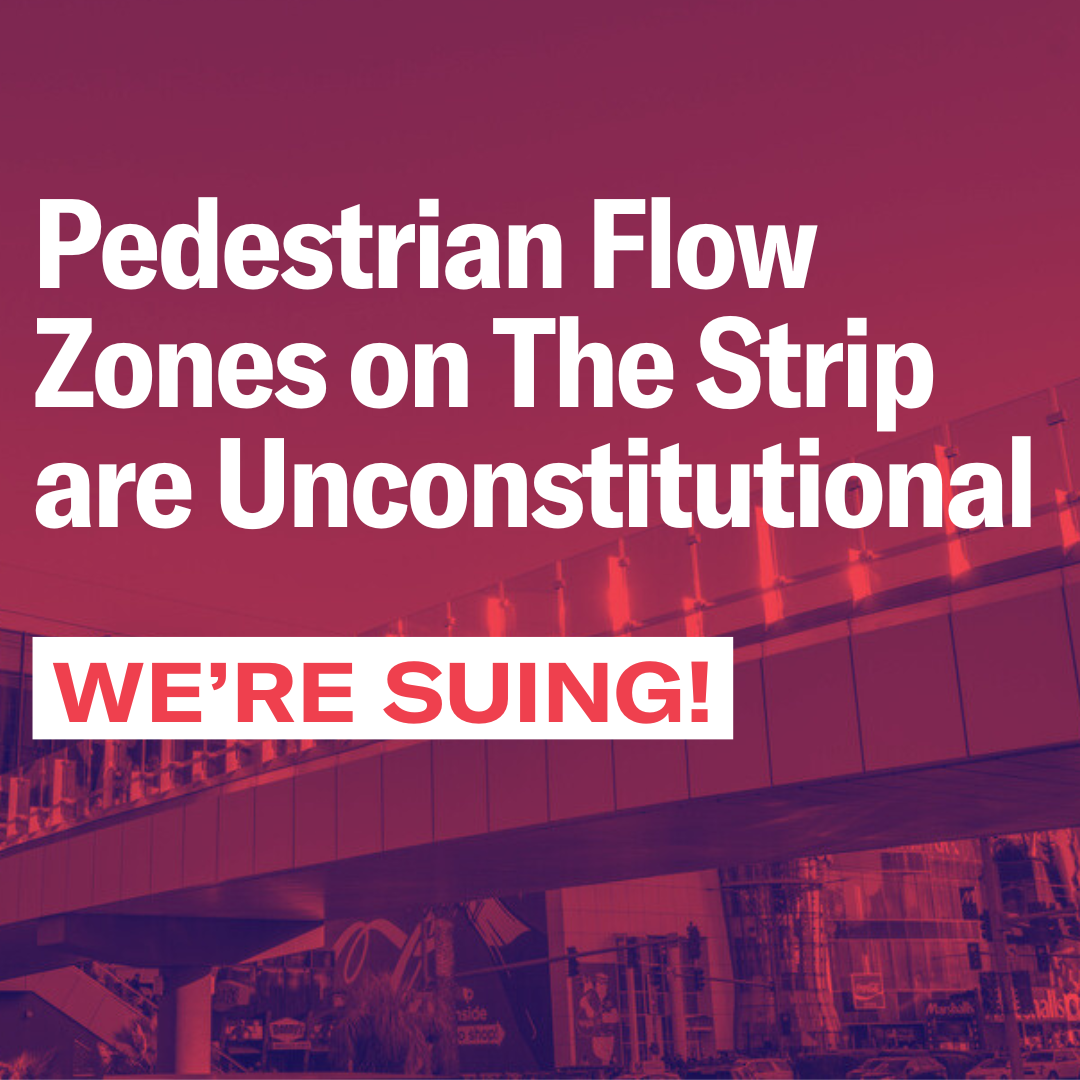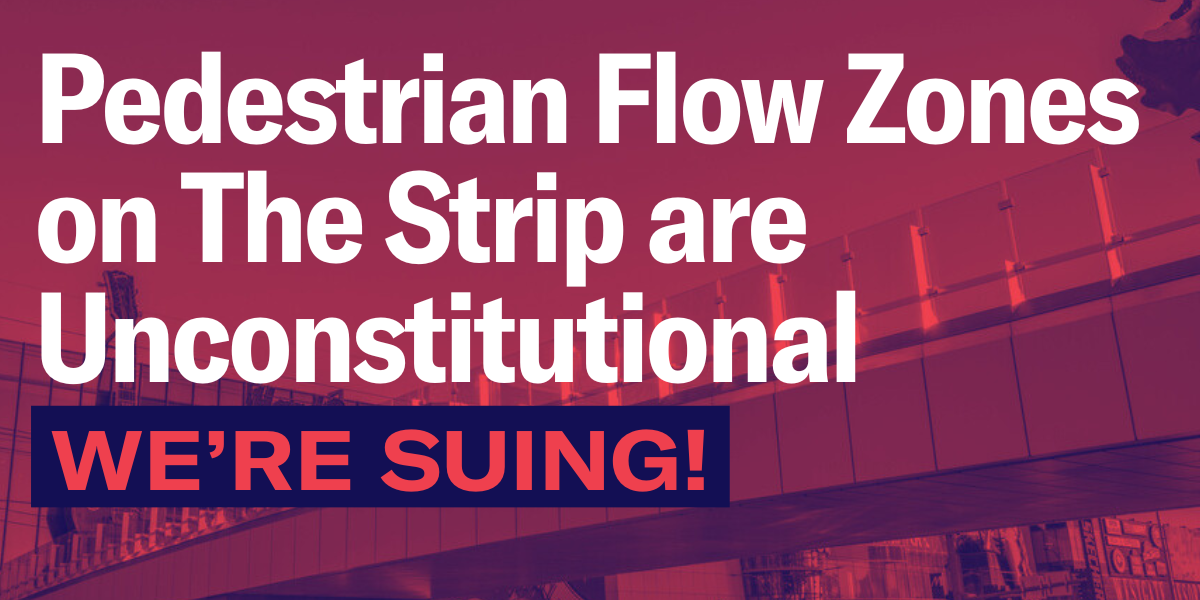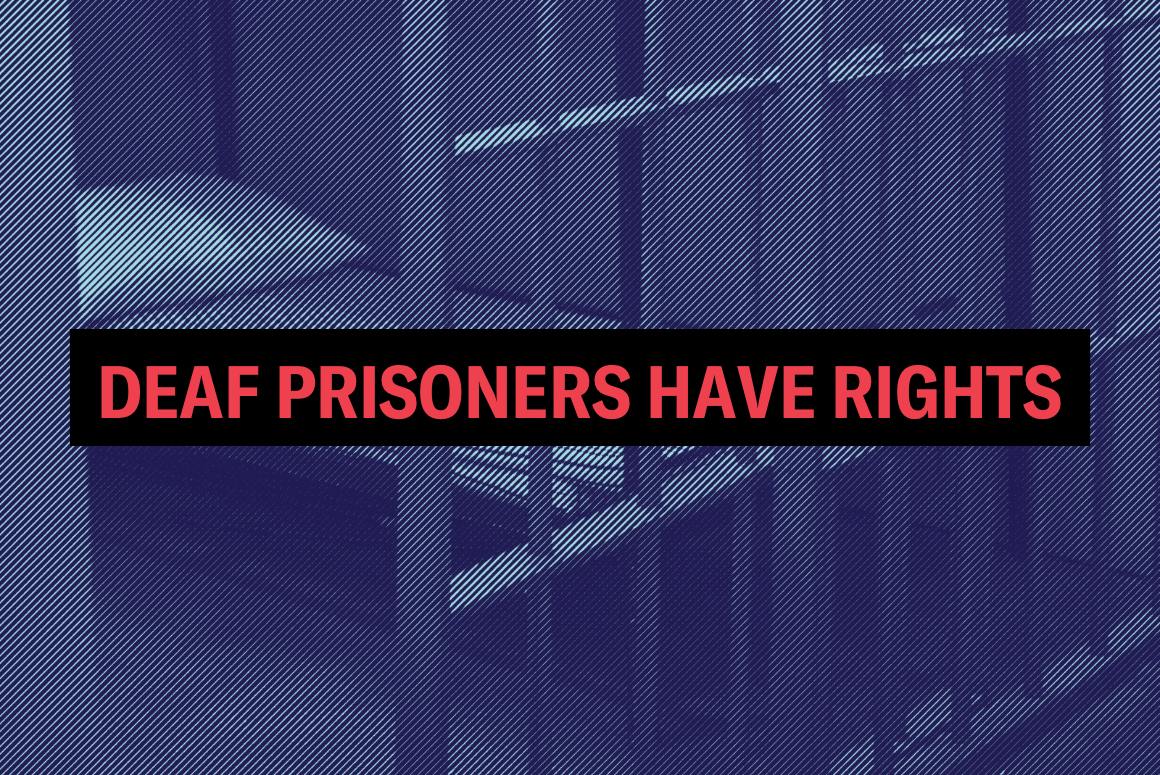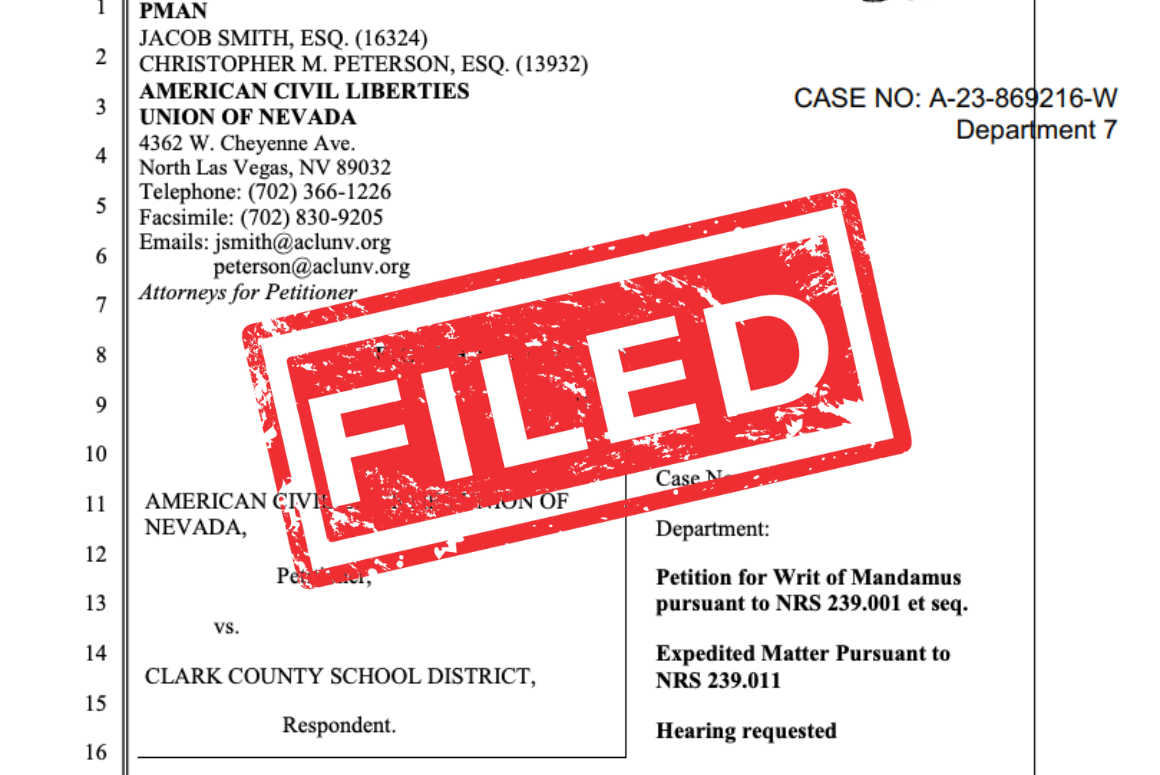In January 2024, the Clark County Commission voted to establish pedestrian flow zones on the pedestrian bridges at the Las Vegas Strip and charge people with a misdemeanor for stopping or standing on these bridges.
The First Amendment
Like sidewalks, the pedestrian bridges at the Las Vegas Strip are public forums -- a place where First Amendment protections are strongest. Under this ordinance, First Amendment activity, including artistic performances and political protests -- even stopping to take a selfie -- are not permitted on the bridges. Forcing people from these public forums by criminalizing First Amendment activity violates the Constitution and ignores the fact that these bridges are public property that belongs to everyone.
The Fourteenth Amendment
Due process requires that laws be clear about what conduct is prohibited and requires laws to be enforced against everyone equally. This ordinance is so broad, and it creates too much confusion on what conduct is actually prohibited, banning any stopping or standing on the bridge with the exception of waiting for escalators or elevators. Clark County has indicated that this ordinance should be enforced against street performers who stop to perform while also indicating that the ordinance should not be enforced against tourists who stop to take pictures. The way Clark County has promised to enforce this ordinance conflicts with the plain text and allows law enforcement too much discretion to pick and choose who to charge with a violation of the ordinance.
The Americans with Disabilities Act
The Americans with Disabilities Act (ADA) protects people with disabilities from being discriminated against for their disability. Some disabilities inhibit a person from physically being able to cross a pedestrian bridge without stopping, but under this ordinance, stopping due to disability is considered a misdemeanor. Criminalizing the act of stopping due to disability discriminates against people with disabilities and directly violates the ADA.
Insufficient Data
The County brought this ordinance forward on the heels of a viral video of ordinary folks stopping on the bridges to catch a glimpse of the F1 race, and under this proposal, those individuals would be considered criminals, even when they pay for publicly funded pedestrian bridges. The laws on the books, if properly enforced, are already sufficient to address the County's problems. It's flawed "data" suggests this ordinance is needed, but there is no indication that LVMPD will start patrolling bridges differently. In effect, this will be a selectively used ordinance meant to target specific people.
Date filed
Court
Case number
Hide banner image
Date
Friday, February 16, 2024 - 10:30amShow featured image
Override site-wide featured action/member
Featured image



